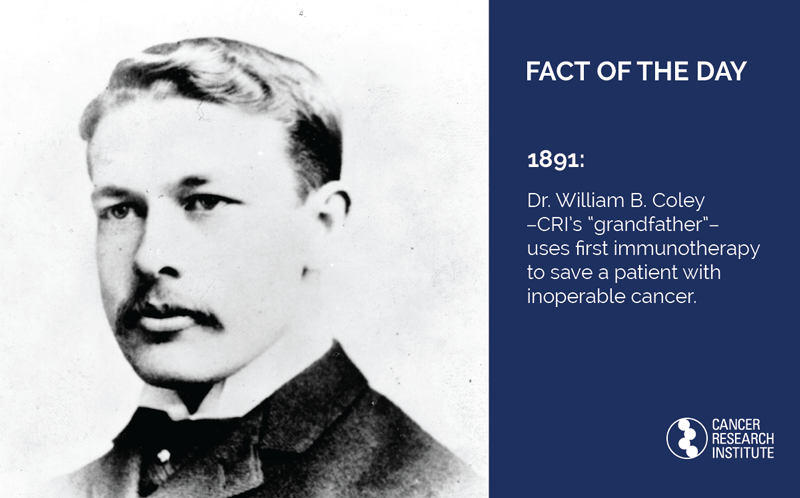 1891: Dr. William B. Coley—CRI’s “grandfather”—uses first immunotherapy to save a patient with inoperable cancer.
1891: Dr. William B. Coley—CRI’s “grandfather”—uses first immunotherapy to save a patient with inoperable cancer.
In the late 1800s, surgery was really the only decent option available to cancer patients. This frustrated Dr. William B. Coley, especially after he was unable to save a patient named Bessie Dashiell, who was a close friend of John D. Rockefeller Jr.
So, in 1891, inspired by a case he’d read about, Coley decided to try something new. He used bacteria to purposely infect a New York City man named Zola, who had many advanced tumors including one in his throat that prevented him from eating.
Amazingly, it worked, and soon after Zola resumed his normal life.
For many reasons, including the advent of radiation and then chemotherapy, Coley’s approach was largely dismissed during his lifetime. Immunotherapy would not be forgotten though, and in 1953, Coley’s daughter, Helen, with the help of a $2,000 grant from John D. Rockefeller Jr.’s son Nelson, launched the Cancer Research Institute (CRI).
To honor and commemorate the “Father of Immunotherapy”, CRI bestows an annual William B. Coley Award that recognizes scientists whose work has deepened our understanding of the immune system’s cancer-fighting capabilities and advanced the development of effective immunotherapies for patients. You can learn more about Dr. Coley’s story and the history of the Cancer Research Institute here.
Image credit: Cancer Research Institute